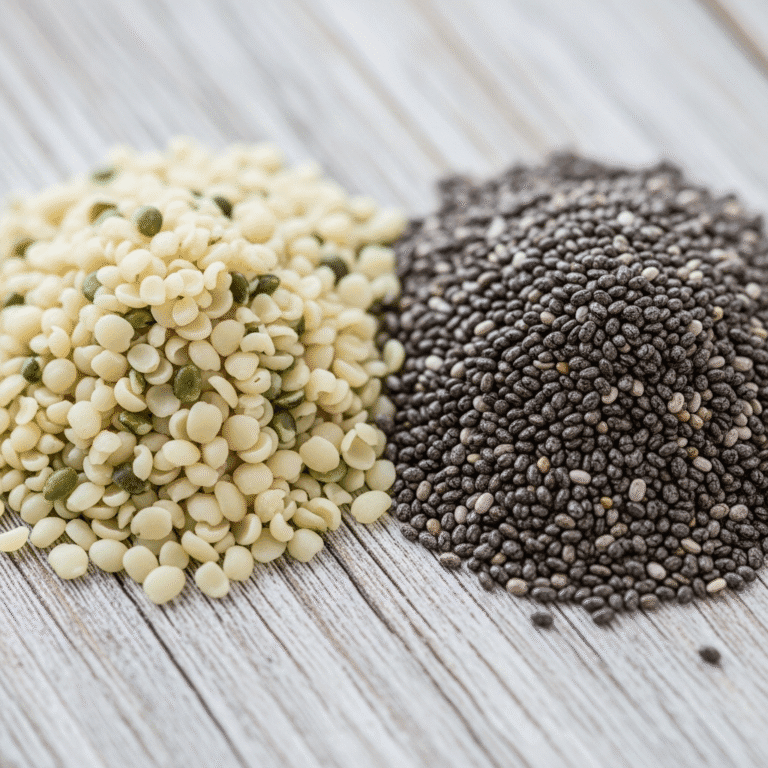FREE SHIPPING OVER $50
100 Lbs Gone: This Mom’s Simple Habit Ended Emotional Eating (And You Can Do It Too!)
We’ve all been there, right? You’ve had a tough day, the kids are finally asleep, and suddenly that bag of chips or tub of ice cream calls your name. It’s not about hunger; it’s about comfort, stress, boredom, or just… feelings. This is emotional eating, and it’s a huge hurdle for so many people trying to achieve sustainable weight loss. It can feel like an invisible force, making you “eat like crazy” even when you know it’s not serving your health goals.
But what if I told you that one mom, just like you, managed to overcome this powerful urge and achieve an incredible 100-pound weight loss? And not with some crazy diet, impossible workout routine, or expensive pills. Her secret weapon was a single, surprisingly simple habit that helped her stop emotional eating in its tracks. It sounds almost too good to be true, but her journey proves that small, consistent changes can lead to monumental results.

The Silent Struggle: Understanding Emotional Eating
Before we reveal the magic habit, let’s talk openly about emotional eating. It’s not a weakness; it’s a coping mechanism. We turn to food for many reasons beyond physical hunger:
- Stress: A stressful day at work, family drama, or just the daily grind can send us reaching for comfort foods.
- Boredom: When there’s nothing else to do, eating can fill the void.
- Sadness or Loneliness: Food can temporarily numb painful emotions.
- Happiness or Celebration: Sometimes, food is intrinsically linked to joy and celebration, making it hard to separate.
- Fatigue: When you’re tired, your body craves quick energy, often found in sugary or fatty foods.
The problem is, this temporary comfort often leads to guilt, shame, and further weight gain, creating a vicious cycle. Many people feel like they’re “eating like crazy” or “out of control” when these emotional triggers hit. They might try restrictive diets, only to find themselves spiraling back into old habits when emotions run high. This mom knew that feeling all too well.
The Breakthrough: Her Simple Habit That Changed Everything
This mom, let’s call her Sarah, was tired of the cycle. She’d tried countless diets, seen temporary results, and always gained the weight back. The real turning point came when she realized her biggest challenge wasn’t what she was eating, but why and how she was eating. Her breakthrough moment led to adopting one simple habit: a mindful pause before eating.
That’s it. It sounds almost too easy, right? But here’s how it worked, and why it’s so powerful.
Instead of automatically reaching for food when a craving hit or she felt an emotion, she committed to a pause. Just a few minutes – sometimes even 60 seconds – to ask herself some key questions:
- Am I truly physically hungry? (Stomach growling, light-headedness) Or is this a craving?
- What emotion am I feeling right now? (Stress, boredom, sadness, anger, happiness)
- What do I really need in this moment? (Rest, a walk, a chat with a friend, a glass of water, to journal, to listen to music, to breathe)
- Will eating this food genuinely solve the problem, or just temporarily distract me?
This simple habit of taking a mindful pause created a crucial gap between trigger and action. It shifted her from automatic, reactive eating to intentional, conscious eating. It allowed her to identify the root cause of her desire to eat and choose a more effective, non-food coping mechanism. This wasn’t about deprivation; it was about awareness and choice.
How This Simple Habit Fueled a 100-Pound Weight Loss
Sarah’s 100-pound weight loss wasn’t a result of a sudden metabolic miracle. It was the cumulative effect of consistently practicing this mindful pause that led to several powerful changes:
- Reduced Calorie Intake Naturally: By eating only when truly hungry and addressing emotional needs directly, she naturally consumed fewer calories without feeling deprived or “on a diet.” She stopped mindless snacking and binge-eating fueled by emotions.
- Improved Relationship with Food: Food became fuel and enjoyment, not a crutch or an enemy. This reduced her guilt and shame around eating.
- Enhanced Self-Awareness: She became incredibly attuned to her body’s signals and her emotional landscape. This self-knowledge is invaluable for long-term health and well-being.
- Built New Coping Mechanisms: Instead of defaulting to food, she learned to reach for healthier ways to manage stress and emotions – like taking a short walk, calling a friend, practicing deep breathing, or engaging in a hobby.
- Increased Confidence: Each time she successfully navigated an emotional eating urge, her confidence in her ability to control her choices grew, reinforcing her new habits.
Implementing the Mindful Pause in Your Life
Here’s how you can start practicing the mindful pause today:
- Identify Your Triggers: Pay attention to when you feel the urge to eat outside of mealtimes. Is it when you’re stressed? Bored? Watching TV? After putting the kids to bed? Recognizing these patterns is the first step.
- Create Your “Pause” Moment: Before you open the fridge, grab that snack, or order takeout, commit to a short pause. This could be 60 seconds, 5 minutes, or even just taking three deep breaths. Set a timer if it helps.
- Ask Yourself the Key Questions: During your pause, gently (without judgment!) ask:
- Am I truly physically hungry?
- What emotion am I experiencing right now?
- What do I actually need? Is it food, or is it rest, connection, distraction, or self-care?
- Will eating this make me feel better in the long run, or just momentarily?
- Choose a Non-Food Response (When Appropriate): If you realize it’s not physical hunger, choose an alternative action. Keep a list handy!
- Drink a large glass of water or herbal tea.
- Take a 5-minute walk.
- Call a friend or family member.
- Listen to a favorite song.
- Do a quick stretch.
- Practice deep breathing or a short meditation.
- Read a few pages of a book.
- Engage in a quick chore or hobby.
- Practice Self-Compassion: You won’t be perfect every time, and that’s okay! If you do engage in emotional eating, don’t beat yourself up. Acknowledge it, learn from it, and recommit to your mindful pause next time. Every pause is a victory, regardless of the outcome.
Beyond the Pause: Supporting Your Weight Loss Journey
While the mindful pause is a phenomenal tool for emotional eating. Sarah also implemented a broader healthy lifestyle to accelerate her weight loss and overall well-being.
- Prioritize Protein and Fiber: Eating meals rich in protein (like lean meats, fish, beans, lentils, eggs) and fiber (from fruits, vegetables, whole grains) keeps you feeling full and satisfied, reducing the likelihood of physical hunger triggering emotional eating.
- Stay Hydrated: Sometimes thirst is mistaken for hunger. Keep a water bottle handy and sip throughout the day.
- Get Enough Sleep: Fatigue can significantly increase cravings and reduce your willpower. Aim for 7-9 hours of quality sleep each night.
- Manage Stress Effectively: Proactively incorporate stress-reducing activities into your daily routine – whether it’s yoga, journaling, spending time in nature, or meditation.
- Plan Your Meals: Having a plan for what you’ll eat reduces decision fatigue and the likelihood of impulse, emotion-driven choices. Meal prepping can be a game-changer.
- Move Your Body: Regular physical activity not only burns calories but also releases endorphins, which can naturally boost mood and reduce the need for food as a coping mechanism.
- Seek Support: Don’t go it alone. Connect with friends, family, a support group, or a health professional (like a dietitian or therapist) who understands the complexities of emotional eating and weight loss.
Conclusion
Sarah’s story is a powerful testament to the idea that transforming your health doesn’t always require drastic, overwhelming changes. Sometimes, it’s that one simple habit, consistently applied, that unlocks everything. The mindful pause gives you back control, allowing you to respond to your needs rather than react to your emotions. It shifts you from a place of feeling “out of control” to one of empowerment and intentional choice.
If you’ve been struggling with emotional eating and finding sustainable weight loss, know that you’re not alone, and there is a path forward. Take a deep breath, embrace the mindful pause, and start your journey towards a healthier, happier relationship with food and your body.
Related Articles
- Want to Lose Weight? Dietitians Say This Is The #1 Nut You Need
- Ignite Your Metabolism: Dietitians Reveal The #1 Breakfast for Fat-Burning All Day
- Wake Up Slimmer: 4 Morning Habits After 50 That Attack Belly Fat, No Workouts
- Women Over 40: Dietitians Reveal 6 Supplements to Ignite Your Metabolism & Melt Stubborn Fat
- From Pre-Diabetes to Healthy: He Lost 60 Lbs with 3 Simple, Life-Changing Tips







